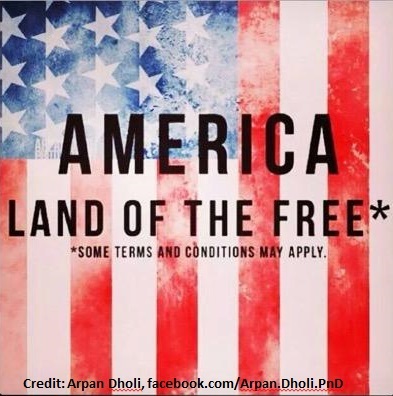You won't need a box of tissue nearby when you read my high-skilled immigration story. I don't feel sorry for myself, neither should you. A Generation X system analyst for a mega-sized telecommunication firms, married, and mother of two -- I felt like the Joan of Arc of the women's liberation movement and had made Simone de Beauvoir proud. That was before I followed the American dream and immigrated to the land of the free.
When my husband was accepted into a surgical oncology fellowship at one of the world's leading Cancer Centers in New York City, I left my successful career, my family, and my country to follow. YES, I followed my man and that was a good decision. A strong, independent, competent woman should make decisions based on her reality, values and beliefs.
I believed my husband needed my love and support during the intense fellowship and that our family should stay united. Over the years, I haven't met a person who was loved by his or her career. Inversely, I have met people who loved their career in a way that destroyed every personal connection they had. I wasn't ready to let that happen. As much as I loved my career, I was ready to temporarily trade it for the common good.
At the end of his second fellowship combined with years of experience as a transplant surgeon, my husband possessed capabilities and credentials that only a few U.S. surgeons have. He received job offers from leading institutions across America, and we had decided to emigrate to the U.S.
Statistically, high-skilled immigration forms the backbone of America's innovation and leadership; forty percent of Fortune 500 companies were founded by high-skilled immigrants. I believed two professionals like us would be welcomed to stay, or the very least, before long, I would receive a work visa and reignite my career.
I was no stranger to curveballs. Over the years, life threw countless ones, and I hitʼem all out of the park. Yet nothing prepared me for years of unemployment, forced upon me by the visa regulations of the United States Citizenship and Immigration Services. Being unable to work wasn't a curve ball-- unemployment was a loss of identity.
Being financially independent has always been important, but even more, I wanted to prove myself, lead and become successful. I started working when I was twelve. At the age of eighteen, I served in the military as a tank instructor, and seven years later, I graduated from Tel Aviv University. At the age of 29, I became a project manager in the IT department of the largest telecommunication firm in Israel and was responsible for the design and implementation of the country' second Knowledge Management system. My life was interesting and active, I managed employees and my decisions influenced the company's future. I felt powerful, like living with a small but steady stream of adrenaline in my body, and I loved it.
But this feeling of power swiftly vanished soon after I immigrated to the United States. Unable to work, with a husband who was never home, and children in school, I went out on the streets of New York and wandered for hours alone, taking the subway, and getting off along the way--without knowing where I was, or where I was going. I spent hours in Central Park watching people walk past me. Fall was usually my favorite season of the year, but I remember sitting on a bench watching the trees shedding their leaves, and feeling as if I was shedding my identity.
For the first time in my adult life, I wasn't working. I didn't need to prove myself and be recognized for my success. I had lost a substantial source of pride. I was happy to be a mom and a wife. These were wonderful accomplishments, but at the end of the day, I wanted to come home to my family, instead of waiting for them to come home to me. I needed this for balance. In NY, I found myself completely lop-sided and far away from the life I had vigilantly crafted.
When we decided to emigrate, I thought I was trading my career for something matchless, and I did. I still believe family should come first. But what I cannot wrap my head around is why the United States of America, the greatest advocate of human rights, made me choose between my career and my family. The process took six years, three changes in visa status, and living in a medically under-served region to receive permanent residency. Now, when I'm finally able to work, I reside in an area with extremely limited employment opportunities in my field.
High-skilled immigration is different than illegal, refugee or asylum immigration. Although several years passed while I created my life's new meaning, my story is not a tearful tragedy to leave you feeling grateful for everything you have. But it should be! Over the last century America positioned itself as a superpower thanks to immigrants, and to be precise, thanks to highly-skilled immigrants. America's future prosperity heavily hinge on attracting the best talents.
Given the disastrous condition of the high-skilled immigration system, the best talents will soon investigate places where they are considered an asset not a liability, and believe it -- that would be tragic.

